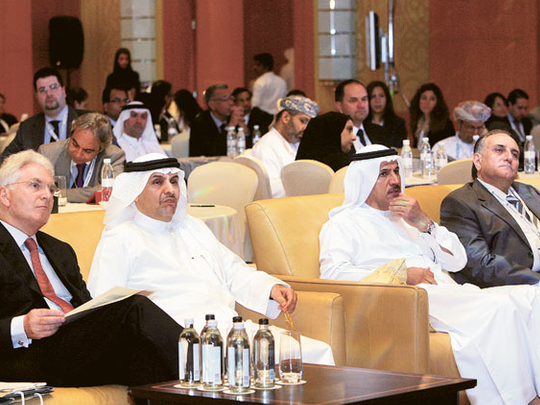
Dubai: Emphasising the strong relationship that exists between corporate governance and foreign direct investment, UAE Minister of Economy Sultan Bin Saeed Al Mansouri exhorted the regulators to ensure compliance and the business community to embrace the codes.
Amid the slowdown in the developed economies, the current economic climate of the region — with the average gross domestic product (GDP) growth in the Middle East in 2011 projected by the International Monetary Fund to be around 5.1 per cent compared to 2.3 per cent in the US — presents a unique opportunity to attract foreign investors, said Al Mansouri in his keynote address at yesterday's Sixth Annual regional Corporate Governance Conference.
Countries in the region rank among the top in projected GDP growth, foreign direct investment (FDI) inflows and ease of doing business.
But he pointed out that recent global developments have made the investors "extremely cautious."
Al Mansouri said that the mere presence of clauses such as protection of shareholder rights, disclosure and transparency may not be sufficient to reassure global investors. "The differentiator, of course, will be implementation and compliance," he said.
Principles
"Investors will be encouraged by business environments where sound governance principles are implemented and adhered to, in letter and spirit."
Experts have pointed out that while corporate governance frameworks adopted by the countries of the region have been some of the most robust, implementation has lagged behind.
The phase of adopting the standards in the past decade has been called the "first wave" and the current call for action to ensure compliance is being termed the "second wave."
To alleviate the global investors' concerns and make the best use of the opportunity, he laid out three points of action: accelerating the reform and restructuring process that was initiated before the global downturn; focusing on innovations; and the private sector embracing corporate governance as an "institutional capacity, rather than a regulatory requirement."
For its part, the Ministry of Economy is in the final stages of its work on new laws governing competition, foreign investment, arbitration and intellectual property, industries and small and medium enterprises (SMEs), among others.
Al Mansouri believes the ongoing changes will usher in opportunities for growth for the businesses in the UAE. These will also, he said, enable foreign investors to enter and expand across the "fast-emerging markets in the Middle East, Africa and Asia."
With family businesses and SMEs still comprising the dominant part of the economy, he reiterated that adopting corporate governance practices as early as possible would allow them to access funds.
Leveraging expertise
By leveraging their core expertise and commitment to good governance practices [the family businesses] can access funds and attract capital from around the world," Al Mansouri said.
And for SMEs to grow, he said, "they should remain worthy of financing, investing and growing globally, which will not be possible without efficient corporate governance systems."
The Dubai Department of Economic Development's introduction of the first SME Code of Corporate Governance earlier this year, he said, has given SMEs, financial institutions and investors a "clear metrics" by which the strengths can be measured.












